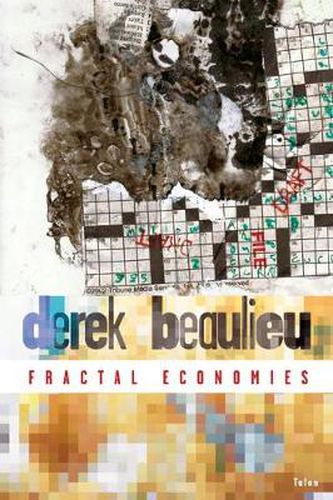Readings Newsletter
Become a Readings Member to make your shopping experience even easier.
Sign in or sign up for free!
You’re not far away from qualifying for FREE standard shipping within Australia
You’ve qualified for FREE standard shipping within Australia
The cart is loading…






In fractal economies, derek beaulieu pushes the limits of poetry and poetics by grinding language through the mill of photocopiers, found material, collage, printmaking, frottage and Letraset-creating a new language for the genre. These fractal economies, or series of increasingly complex replications of forms through the repeated application of a fixed set of rules, challenge the status quo of poetry and of the politics of language itself, which is, with respect to any human script yet deciphered, capitalist in its very origin. Letters are freed from their normal behavior, machines are let loose to create on their own and the borders between poetry and artwork are blurred. In an intriguing and well-argued afterword, beaulieu also theorizes ways that concrete poetry-poetry that deals with language in a physical, material way-can move forward into the twenty-first century beyond the limitations of the page, the author and even the poem itself.
$9.00 standard shipping within Australia
FREE standard shipping within Australia for orders over $100.00
Express & International shipping calculated at checkout
In fractal economies, derek beaulieu pushes the limits of poetry and poetics by grinding language through the mill of photocopiers, found material, collage, printmaking, frottage and Letraset-creating a new language for the genre. These fractal economies, or series of increasingly complex replications of forms through the repeated application of a fixed set of rules, challenge the status quo of poetry and of the politics of language itself, which is, with respect to any human script yet deciphered, capitalist in its very origin. Letters are freed from their normal behavior, machines are let loose to create on their own and the borders between poetry and artwork are blurred. In an intriguing and well-argued afterword, beaulieu also theorizes ways that concrete poetry-poetry that deals with language in a physical, material way-can move forward into the twenty-first century beyond the limitations of the page, the author and even the poem itself.